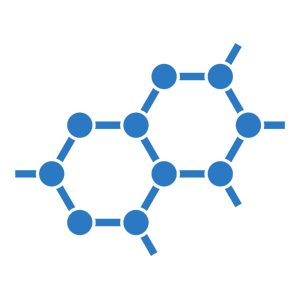While most medications do not impact the circadian rhythm or melatonin production directly, there are several classifications of pharmacological compounds that can impact typical results, depending on the dosage and the individual’s physiology.
Circadian Rhythm/Melatonin Drug Interactions
General Guidance
A general guideline is to stop any medication that your patient can safely and comfortably discontinue under your care for 3-5 days before beginning the assessment. For medications that cannot be discontinued easily, comfortably, or are medically necessary, it is best not to administer them within 8 hours prior to beginning the assessment or during the assessment sample collection period. In most cases, patients can safely administer daily medications immediately after the last sample is collected. Medications that must be taken during the assessment should be documented on the sampling form.
Melatonin Supplementation
A general guideline is to avoid melatonin or melatonin-containing supplements for at least 10 days, when possible. While the initial half-life of exogenous melatonin or melatonin-containing supplements typically range from 20 minutes to 2 hours, we frequently observe high melatonin concentrations lasting much longer after discontinuing routine supplementation. This can present as elevated melatonin levels, phase shifts, and oscillating profiles. This phenomenon is inter-individual dependent and often influenced by the duration and dosage of routine supplementation.
If a 10-day washout period induces significant patient distress, a minimum recommended discontinuation/ withdrawal protocol for melatonin supplementation is outlined below, based on dosage and frequency:
- 3 days (minimum) for up to 1.5 mg dosing as needed
- 5 days (better) for up to 1.5 mg routine dosing or up to 3 mg dosing as needed
- 10 days (best) for up to 3 mg routine dosing or up to 5 mg dosing as needed
- 15 days (ultimate) for 5-10 mg as needed or routine dosing
Circadian Rhythm Drug Interaction Index
While assessing every pharmacological compound, dosage, and combination effect would be astronomical, we are working to create an index of medications that likely impact either circadian timing or melatonin production. Please note that the evidence below is anecdotal and has not been part of a formal clinical trial – however, it is still important to note in the event that atypical results are present. Although the clinical significance is typically moderate, emerging evidence suggests that certain medications elevate the probability of impact to a clinically significant level, as delineated in the table provided below:
| Medication Class | Effect on Melatonin | Impact Probability |
| Stimulants | May Dysregulate Levels | High |
| Sedatives | May Dysregulate Levels | High |
| Beta-blockers | May Dysregulate Levels (commonly decrease) | High |
| Selective Serotonin Reuptake Inhibitors (SSRIs) | May Dysregulate Levels | High |
| Selective Serotonin Reuptake Inhibitors (SSRIs) | May Dysregulate Levels | High |
| Serotonin and Norepinephrine Reuptake Inhibitors (SNRIs) | May Dysregulate Levels | Moderate |
| Anxiolytics | May Dysregulate Levels | Moderate |
| Benzodiazepines | May Decrease Levels | Moderate |
| Nonsteroidal Anti-inflammatory Drugs (NSAIDs) | May Decrease Levels | Moderate |
| Proton Pump Inhibitors (PPIs) | May Decrease Levels | Moderate |
| Antipsychotics | May Decrease Levels | High |
| Corticosteroids | May Decrease Levels | High |
| H2 Blockers | May Decrease Levels | Moderate |
| Beta-agonists | May Decrease Levels | Moderate |
| Medications by Name | Effect on Melatonin | Impact Probability |
| Buspirone | May Dysregulate Levels (commonly increase) | High |
| Fluvoxamine | May Decrease Levels | Moderate |
| Mirtazapine | May Increase Levels | High |
| Fluoxetine | May Increase Levels | High |
| Clonidine | May Increase Levels | High |
| Lithium | May Increase Levels | High |
| Topiramate | May Increase Levels | High |
| Carbamazepine | May Increase Levels | Moderate |
 Contact: Salimetrics (USA)
Contact: Salimetrics (USA)
